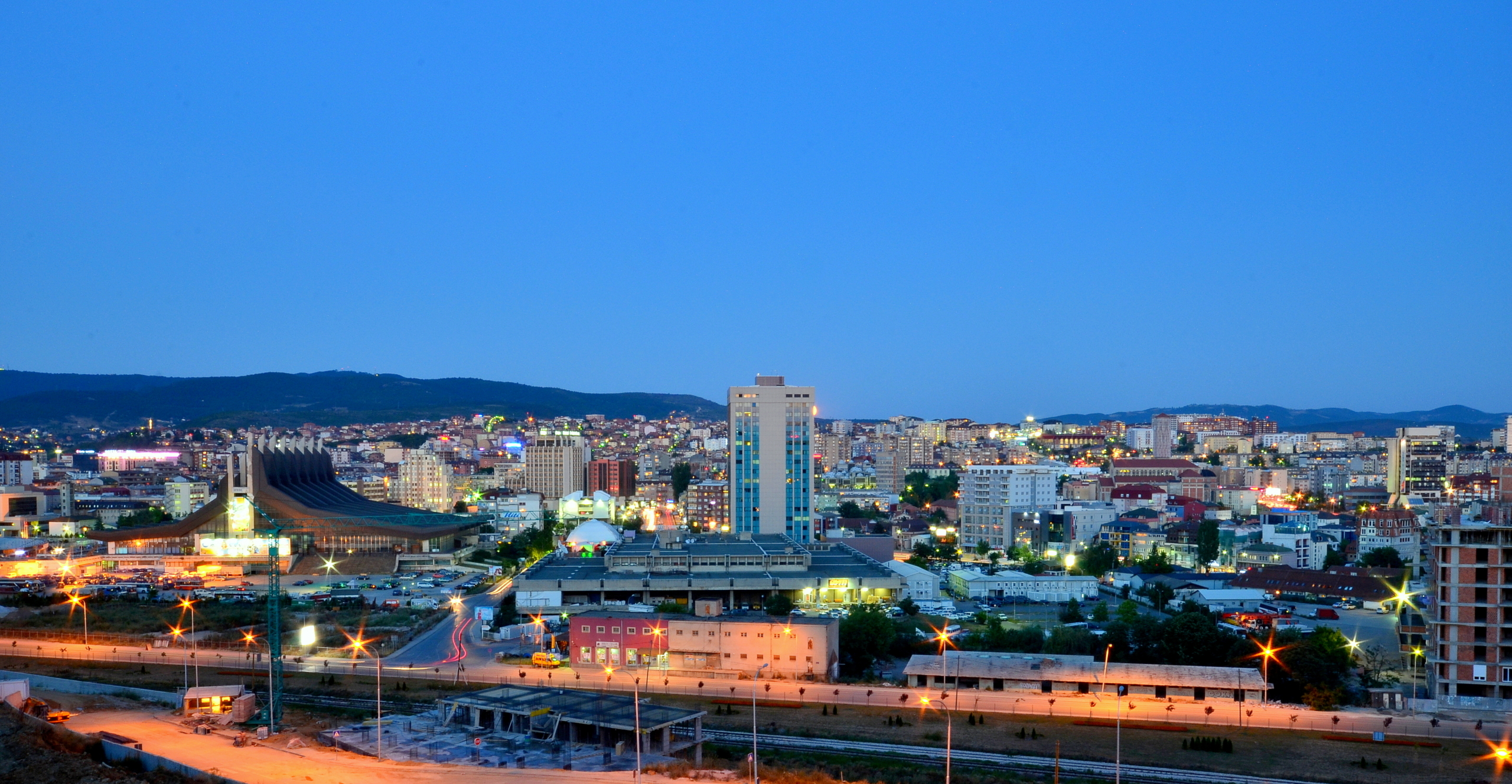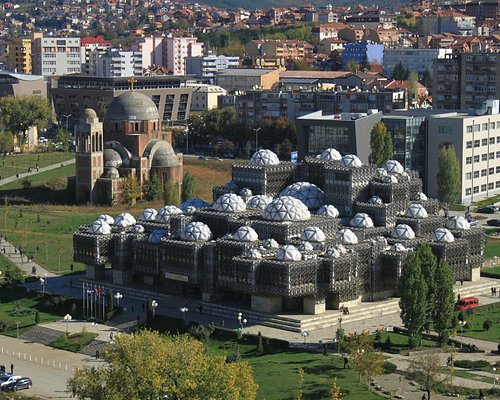
Exploring the Republic of Kosovo: A Nation on the Rise
A suitable business location, nestled in the heart of the Balkan Peninsula, the Republic of Kosovo is among the youngest nations in the world, having declared independence from Serbia in 2008. Its capital, Pristina, is a vibrant hub for politics, culture, and the economy. Despite facing challenges as a developing country, Kosovo is steadily carving out its place in the global community.
Standard of Living in Kosovo: Opportunities Amid Challenges
Kosovo’s standard of living has been on a gradual upward trajectory, though it still contends with economic hurdles. As a nation in transition, it balances affordability with efforts to modernize and grow.
- Affordable Housing and Utilities
Housing in Kosovo is remarkably affordable, with rental prices significantly lower than those in Western Europe. In major cities like Pristina, monthly rents range from €200 to €400. Utilities, including electricity, water, and internet, are reasonably priced, making day-to-day living accessible for families and expatriates. - Employment and Income Landscape
Kosovo grapples with high unemployment rates, especially among its youth. However, initiatives aimed at job creation and foreign investments provide hope for economic improvement. Average monthly salaries are modest, ranging between €400 and €500, but this aligns with the country’s lower living costs. - Healthcare and Education
Healthcare is publicly funded, though the system faces quality and accessibility issues. Many residents turn to private healthcare for better services. The education sector is undergoing reforms, emphasizing modernization and international collaboration, ensuring broader opportunities for students. - Cultural and Social Enrichment
Kosovo boasts a rich cultural fabric, affordable living standards, and close-knit communities. Its slower pace of life compared to urbanized Western Europe appeals to those seeking simplicity and cultural immersion.
Kosovo’s Personal Tax System: Simplified and Fair
Kosovo’s progressive income tax system offers favorable conditions for low and middle-income earners.
- 0% Tax: Income up to €80 per month.
- 4% Tax: Income between €81 and €250 per month.
- 8% Tax: Income between €251 and €450 per month.
- 10% Tax: Income above €450 per month.
This structure ensures a balanced approach, with lower earners benefiting from minimal taxation.
Business Taxation in Kosovo: A Competitive Edge
Kosovo’s corporate tax framework is among the most competitive in the region, designed to attract businesses and investors.
- Corporate Income Tax
A flat corporate tax rate of 10% makes Kosovo an appealing destination for businesses. - Value Added Tax (VAT)
The VAT is set at 18%, with a reduced rate of 8% for essential goods such as food and medicines. Businesses must register for VAT if their annual turnover exceeds €30,000.
Kosovo’s Economic Pillars: Major Industries Driving Growth
Kosovo’s economy, though young, is fueled by several burgeoning sectors that showcase its potential.
- Agriculture: A Cornerstone of the Economy
Agriculture employs a significant portion of the population. The country’s fertile land and favorable climate support the cultivation of crops such as wheat, corn, and potatoes. Livestock farming is equally important, contributing to dairy and meat production. - Mining and Energy: Untapped Potential
Rich in mineral resources like lignite, lead, and zinc, Kosovo’s mining sector holds immense growth potential. While coal-based energy remains a primary source, investments in renewable energy are steadily gaining traction, signaling a shift towards diversification. - Manufacturing: A Growing Contributor
Kosovo’s manufacturing sector focuses on textiles, construction materials, and food production. With competitive labor costs and proximity to European markets, the textile industry is emerging as a key player in the regional economy. - Information Technology (IT): A Rising Star
The IT sector is flourishing, driven by a young and tech-savvy workforce. Services such as software development, outsourcing, and digital marketing attract international clients and foster innovation. - Tourism: Showcasing Kosovo’s Beauty
Kosovo’s natural landscapes, cultural heritage, and historical sites are drawing tourists in increasing numbers. Highlights include Pristina, the scenic Rugova Valley, and UNESCO-listed medieval monasteries.
Inflation and Cost of Living in Kosovo: Balancing Affordability
Kosovo’s low cost of living makes it an attractive destination for residents and expatriates alike.
- Stable Inflation Trends
Inflation in Kosovo typically ranges between 1% and 3% annually, ensuring price stability. However, global economic fluctuations occasionally impact energy and food prices due to the country’s reliance on imports. - Affordable Daily Living
Kosovo offers some of the lowest living costs in Europe. Monthly rents are budget-friendly, utilities are affordable, and transportation costs are minimal. Dining out and entertainment are accessible, with meals at local restaurants costing as little as €5 to €10.
Taxes and Service Charges in Kosovo: What You Need to Know
- Property Taxes
Property owners in Kosovo pay annual taxes based on the market value of their real estate. Rates vary by municipality but generally range between 0.15% and 1%. - Municipal Service Fees
Local municipalities may levy additional fees for essential services such as waste management, water supply, and infrastructure maintenance.
Types of Business Structures in Kosovo: A Comprehensive Guide
Entrepreneurs seeking to establish a business in Kosovo can choose from a variety of structures tailored to meet diverse operational needs:
-
Sole Proprietorship (SP)
This straightforward and cost-effective model is ideal for small-scale businesses. However, it carries unlimited liability, meaning the owner is personally responsible for all debts and obligations. -
Limited Liability Company (LLC)
The LLC is Kosovo’s most popular business entity, offering limited liability protection to its owners. With a minimal capital requirement of just €1, it is accessible to small and medium enterprises. -
Joint Stock Company (JSC)
Designed for larger businesses, a JSC mandates a minimum capital of €10,000. It allows for public trading of shares, making it suitable for entities seeking significant investments. -
General Partnership
This structure involves two or more individuals sharing profits, responsibilities, and liabilities. It is ideal for businesses where trust and collaboration between partners are paramount. -
Branch Office
Foreign businesses can establish a branch office in Kosovo, enabling operations without creating a separate legal entity.
Licensing Requirements for Businesses in Kosovo
Launching a business in Kosovo necessitates obtaining specific licenses and permits depending on the industry and scale of operations:
-
Business Registration
All businesses must register with the Kosovo Business Registration Agency (KBRA) to acquire a unique business identification number. -
Industry-Specific Licenses
Certain sectors, such as healthcare, food services, and construction, require additional approvals from relevant regulatory bodies. -
VAT Registration
Businesses with an annual turnover exceeding €30,000 must register for Value Added Tax (VAT) with the tax authorities. -
Environmental Approvals
Companies involved in activities impacting the environment, such as mining or manufacturing, must secure appropriate environmental permits. -
Labor and Safety Compliance
Organizations hiring employees are obligated to meet labor laws and workplace safety standards to ensure operational legality.
Opportunities for Expats to Thrive in Kosovo’s Growing Economy
Kosovo presents a wealth of opportunities for expatriates eager to establish and grow businesses:
-
Untapped Market Potential
Kosovo’s developing economy offers unexploited opportunities in sectors like renewable energy, agriculture, IT, and tourism. Expats can introduce innovative solutions to fill existing gaps in these industries. -
Strategic Geographic Position
Situated in the Balkans, Kosovo serves as a vital gateway to neighboring markets, including Albania, North Macedonia, Montenegro, and Serbia. -
Cost-Effective Business Environment
Kosovo’s low labor costs, affordable real estate, and favorable tax policies make it a cost-efficient destination for startups and established businesses alike. -
Startup Ecosystem Support
Numerous government and international initiatives provide grants, tax incentives, and training programs for technology-driven and export-oriented enterprises. -
Diaspora-Driven Economic Links
The Kosovar diaspora significantly contributes to local investments and international trade, offering expats opportunities to leverage these established networks.
Pathways to Citizenship for Expats in Kosovo
Kosovo offers structured pathways for expatriates to gain residency and citizenship:
-
Residency Permits
Expats can apply for temporary residency based on employment, family reunification, or business investments. Permanent residency is attainable after five years of continuous legal residence. -
Naturalization Process
Citizenship is granted after 10 years of legal residency. Applicants must demonstrate integration into Kosovar society, including proficiency in Albanian or Serbian. -
Economic Contributions
Although Kosovo lacks a formal investment-based citizenship program, substantial economic contributions may expedite the process of obtaining residency or citizenship. -
Dual Nationality
Kosovo permits dual citizenship, allowing expats to retain their original nationality while becoming Kosovar citizens.
Why Register a Business in Kosovo?
-
Tax Advantages
Kosovo boasts a corporate tax rate of just 10%, one of the lowest in the region, alongside progressive personal income tax rates capped at 10%. -
Strategic Location
Situated at the heart of the Balkans, Kosovo offers unparalleled access to regional markets, making it a strategic base for trade and logistics enterprises. -
Affordable Operational Costs
From labor to utilities and real estate, Kosovo provides a cost-effective environment for businesses, ensuring profitability and scalability. -
Emerging Market Opportunities
Kosovo’s economy presents ripe opportunities in tourism, renewable energy, agriculture, and IT. Businesses catering to an expanding middle class or export-oriented operations stand to benefit greatly. -
Government Support
The Kosovar government actively encourages entrepreneurship through tax incentives, grants, and sector-specific subsidies, particularly in technology and manufacturing.
Steps to Register a Business in Kosovo
The registration process in Kosovo is straightforward and encourages entrepreneurial ventures:
-
Select a Business Structure
Choose an entity type that aligns with your business needs, such as an LLC for limited liability or a JSC for larger investments. -
Reserve a Unique Name
Verify and reserve your company name through the Kosovo Business Registration Agency (KBRA). -
Prepare Documentation
Essential documents include Articles of Association, identification of founders, and proof of initial capital. -
Register with KBRA
Submit the documents to KBRA to officially register your business and obtain a unique business identification number. -
Obtain a Tax Identification Number (TIN)
Register with the tax authority to secure a TIN for tax and VAT purposes. -
Establish a Corporate Bank Account
Open a business account to manage transactions and deposit initial capital. -
Secure Relevant Permits
Depending on the industry, apply for additional permits such as environmental or safety certifications.
Understanding Business Registration Costs in Kosovo
Registering a business in Kosovo is affordable, with several key expenses to consider:
-
Initial Capital Requirements
-
LLC: €1 minimum capital.
-
JSC: €10,000 minimum capital.
-
Registration Fees
Business registration fees range from €20 to €50. -
Notary Services
Certification costs for necessary documents vary between €50 and €200. -
Permit and License Costs
Sector-specific licenses may range from €50 to €500. -
Professional Assistance
Legal and consulting services for seamless registration may cost between €200 and €1,000.
Kosovo’s International Relations: Expanding Horizons
-
Strong EU Ties
Kosovo has signed a Stabilization and Association Agreement with the EU, ensuring preferential market access despite not being an EU member. -
U.S. Partnerships
Kosovo enjoys robust support from the United States, with American businesses playing a critical role in its economic development. -
Regional Cooperation
Efforts to strengthen relationships with neighboring Balkan countries aim to bolster trade and infrastructure projects. -
Global Trade Expansion
Kosovo is diversifying its trade partnerships with countries in Asia and the Middle East, leveraging its natural and industrial resources
Additional Taxes in Kosovo: What Businesses and Individuals Should Know
In Kosovo, beyond corporate income tax and Value Added Tax (VAT), several other taxes contribute to government revenue:
-
Excise Taxes
These are levied on specific goods such as tobacco, alcohol, and fuel. Excise duties form a substantial part of the national revenue and aim to regulate the consumption of these products. -
Social Security Contributions
Employers and employees contribute jointly to the social security system. Employers typically shoulder a higher percentage, funding pensions, healthcare, and unemployment benefits. -
Customs Duties
Imports from non-CEFTA (Central European Free Trade Agreement) countries may incur customs duties. However, trade agreements often mitigate or eliminate these tariffs, promoting cross-border commerce.
Kosovo’s Social Security System: Current Framework and Challenges
Kosovo is steadily building a social security system designed to provide essential services to its citizens. Though still evolving, the framework includes pensions, unemployment benefits, and other social programs.
-
Pension Scheme
The pension system relies on mandatory contributions from employers and employees. While it ensures basic financial support for retirees, the increasing aging population necessitates reforms to maintain its long-term viability. -
Unemployment and Social Welfare
Unemployment benefits are accessible to individuals meeting specific eligibility criteria. Additionally, social assistance programs cater to vulnerable populations, including low-income families and individuals with disabilities. Investments in rural areas are crucial to bridge the gap in service accessibility and quality.
Kosovo’s Climate and Regional Safety: A Balanced Perspective
-
Weather Patterns and Seasons
Kosovo experiences a continental climate marked by distinct seasonal variations:
-
Spring and Autumn: Mild and pleasant, making these seasons ideal for outdoor activities.
-
Summer: Characterized by hot and dry conditions, with temperatures often surpassing 30°C.
-
Winter: Cold, with significant snowfall in elevated regions, offering excellent opportunities for skiing and other winter sports.
-
Safety and Security
Kosovo is recognized as one of the safer countries in the Balkan region. Violent crime rates are low, and the security situation has significantly improved since its independence in 2008. While petty crimes like pickpocketing can occur in crowded urban areas, the government prioritizes public safety, supported by strong local policing efforts.
Passport Power of Kosovo: Limited Reach but Growing Potential
The passport of the Republic of Kosovo currently offers limited global mobility due to ongoing diplomatic challenges. While over 100 United Nations member states recognize Kosovo’s independence, certain nations, including Serbia, do not.
-
Visa-Free Access
Kosovar passport holders enjoy visa-free or visa-on-arrival privileges in approximately 40 countries, including:
-
Regional Neighbors: Albania, Montenegro, and North Macedonia.
-
Selective European Nations: Turkey and Ukraine.
-
Efforts for Expansion
The government is actively working to improve the passport’s global reach by pursuing enhanced bilateral agreements and striving for greater international recognition. Simplified visa procedures with some European Union nations also provide limited benefits to Kosovar citizens.
Education, Economic Growth, and Cultural Opportunities in Kosovo
-
Educational Landscape
Kosovo emphasizes the importance of education, offering mandatory schooling for children aged 6 to 15. The public system is complemented by private and international institutions that cater to diverse needs.
Higher education is growing, with the University of Pristina leading in fields such as engineering, economics, and law. International academic collaborations and exchange programs are elevating the quality of education, and preparing students for global opportunities.
-
Economic Development
Kosovo’s economy is steadily expanding, driven by sectors like IT, agriculture, tourism, and mining. The government actively supports startups and entrepreneurship through tax benefits, grants, and financial incentives. Foreign investments are encouraged, especially in renewable energy, infrastructure, and technology-driven projects. -
Affordable Living Standards
Kosovo’s low cost of living enhances its appeal as a destination for expats, retirees, and remote workers. Housing, utilities, and groceries are affordable, allowing residents to maintain a comfortable lifestyle. Urban hubs like Pristina offer modern amenities, while rural areas provide a peaceful and community-centric environment. -
Cultural and Recreational Opportunities
Kosovo’s cultural richness, shaped by Albanian, Ottoman, and Yugoslav influences, is evident in its festivals, traditional markets, and historical landmarks. Natural attractions like the Rugova Valley and Brezovica ski resort offer extensive recreational options, fostering an active and engaging lifestyle.
Kosovo is steadily carving its niche as a dynamic and promising nation. With affordable living, emerging markets, and a rich cultural heritage, the country offers a blend of opportunities for growth, learning, and exploration.






